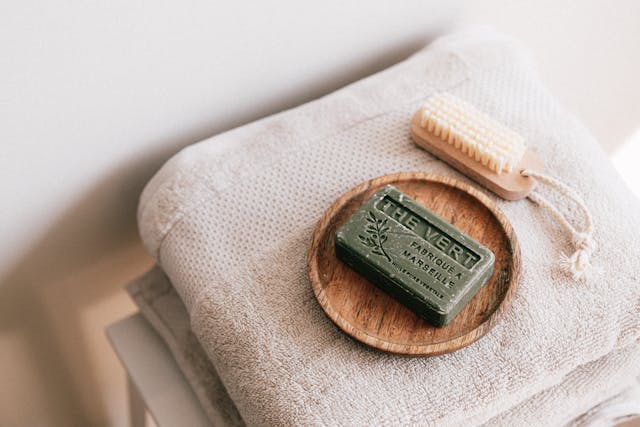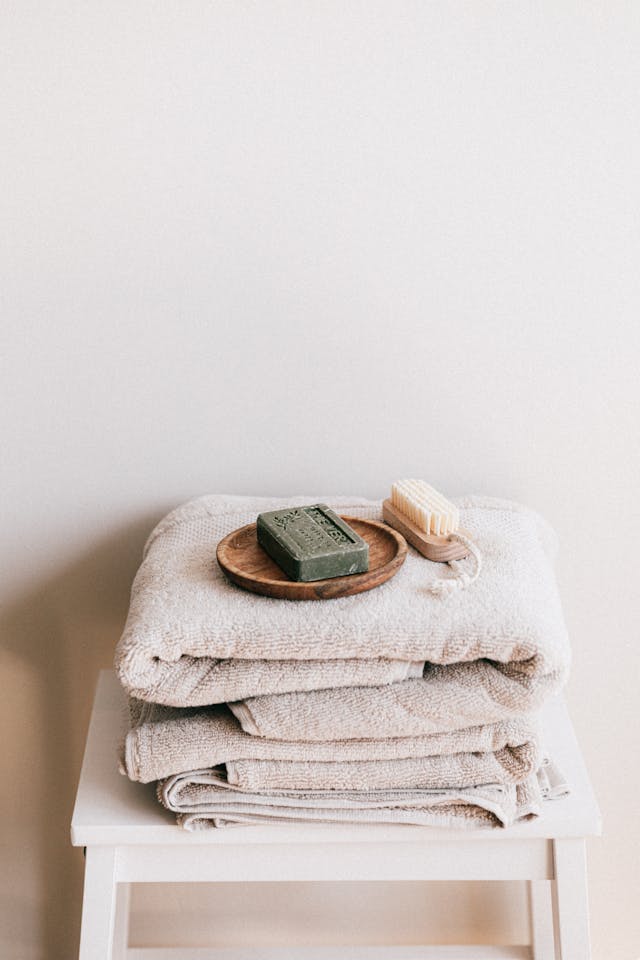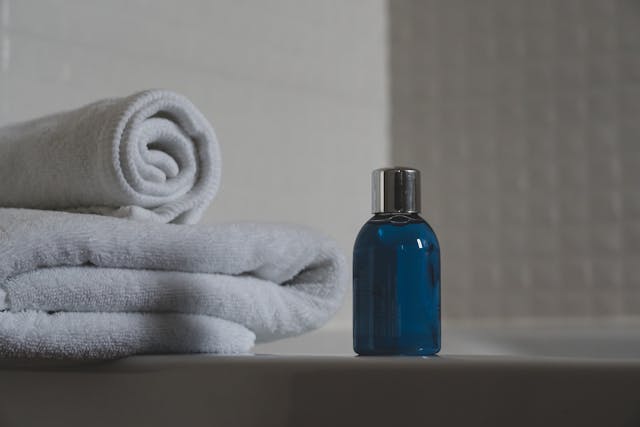The days of picking up any body wash or soap, slathering it on your skin, and calling it a day are long gone. There’s never been a better time to choose between using body wash or bar soap to wash the skin below the neck, especially with everything showering taking over our TikTok feeds. Despite its reputation for being dry and stripping the skin, bar soaps are now on par with body wash due to recent formulation changes.
So how do you make a decision when faced with the dilemma of body wash vs. bar soap? In order for you to receive a thorough clean without sacrificing the health of your skin, we contacted three skin-care specialists for their opinions on the advantages and disadvantages of both.

How the Formulas for Body Wash and Bar Soap Compare
The composition and texture of body wash and bar soap vary most significantly from one another. Bar soap, which is often more concentrated and solid, is created via the saponification process, which involves the formation of fats and oils, as Dr. Arora explains. Body wash, on the other hand, is a liquid cleanser that is not made using the same method. Rather, it includes water, moisturizing and conditioning chemicals, and sometimes oils or active substances. “Oils and grime on the skin are combined by both body wash and bar soap, which may then be rinsed off with water. These products’ surfactants aid in the breakdown of the oils on the skin, according to Dr. Arora.
Because bar soap has a higher pH, it is often believed to dry out the skin more. It is said to leave it feeling very clean, after all. Body wash targets certain skin issues and is more moisturizing. “Body wash is typically dispensed through a pump or squeeze bottle, while bar soap, which can easily be overused and disrupt the skin’s barrier function, must be lathered by hand with water.”
Variations in Packaging
Bar soaps have less packaging, which makes them more environmentally friendly. They need less packing and are thus a more ecologically responsible alternative since they typically only have a paper or cardboard wrapper—some are even made of recycled materials. Dr. Arora continues, “They also last longer and are more cost-effective.” Bar soap may contain germs if it is not maintained correctly since it often has less preservatives than liquid body wash.
Body washes are contained in plastic, glass, or metal bottles and tubes, which are less environmentally friendly than freestanding bar soaps but provide a significantly more sanitary product with less room for germs to thrive. To stabilize the recipe, preservatives and additives may be added in greater quantities.
Is It True That 60% of What You Put On Your Skin Is Absorbent?
Is Body Wash or Bar Soap More Effective?
A lady in the shower applying body wash.
The general advantage remains the same whether you use a body wash or bar soap for your team to clean your skin. Is there a cleaner that works better than the other?
According to Dr. Lal, the absence of preservatives in bar soap makes it generally cleaner than liquid counterparts; yet, there remains a risk of contamination. “Bar soap often grows more bacteria,” he says. “Plus, most people use bar soaps everywhere (yes, everywhere!), and using one on the face and in private areas could potentially spread bacteria.”
Because bar soaps are alkaline, they are often perceived as drying on the skin, which affects certain skin types more than others. “Bar soaps usually have a higher pH than skin, which causes the disruption of the skin’s protective barrier and removal of the skin’s natural oils. Skin has a naturally slightly acidic pH of 4.5 to 5.5. Dr. Arora says, “This can cause dryness, irritation, and even worsen conditions like eczema.” Bar soaps may also include surfactants and sulfates that remove lipids from the skin. Furthermore, certain bar soaps are antimicrobial, according to Dr. Lal, “which could mess up the skin microbiome.”
Is using a body wash a safer option then? Depending on the product, yes. Though most liquid soaps and body washes are milder and more moisturizing than bar soap, not all of them are made equally. According to Dr. Lal, some may include sulfates, while others may have preservatives to slow the development of bacteria. However, the majority provide the skin with much-needed hydration and nutrients.

The majority of well-known body washes have a pH level that is closer to that of the skin, lowering the possibility of damaging the microbiota and skin barrier. “There are so many varieties of formulations, tailored to different skin types and preferences, too, resulting in a more personalized and effective cleansing experience,” Berry says.
How to Make a Decision
Whether to use body wash or bar soap mostly comes down to personal taste and skin type. Compared to bar soap, body washes may be more adaptable and user-friendly, accommodating a variety of skin types and issues. “To assist the skin regain moisture, body washes often include additional moisturizing components including oils, humectants, and emollients. These components are quite advantageous since it is easy for a company to use them in body wash “says Dr. Arora. Contemporary body washes are also capable of addressing other skin issues, including as pilaris pilaris (KP), outbreaks, and discolouration.
Due to its moisturizing qualities, body wash is often recommended for those with more sensitive or dry skin types; however, according to Dr. Arora, bar soaps may be a better option for people with oily skin types or those who want a more basic washing regimen without additional components that might clog pores. Also, a bar soap could be a better option if your skin responds better to a pared-down ingredient list.

When it comes to cleaning your body’s skin, there is no right or incorrect product to use. Ultimately, it’s important to think about the chemicals in the body wash or bar soap you choose. Steer clear of products that include harsh detergents, antibacterials, artificial smells or perfumes, phthalates, or preservatives since these may cause irritation and deplete the skin of its natural oils. As an alternative, make sure the body cleanser you choose has components that will continue to nourish your skin after you get out of the shower. Your decision is correct if the one you choose feels pleasant on your skin. Read more



